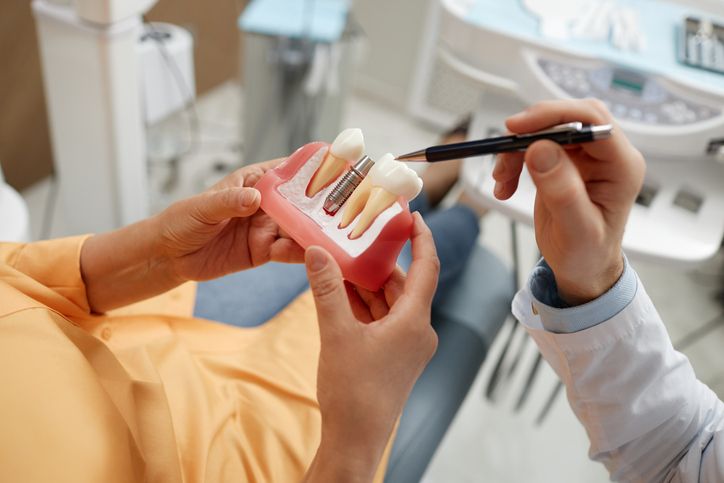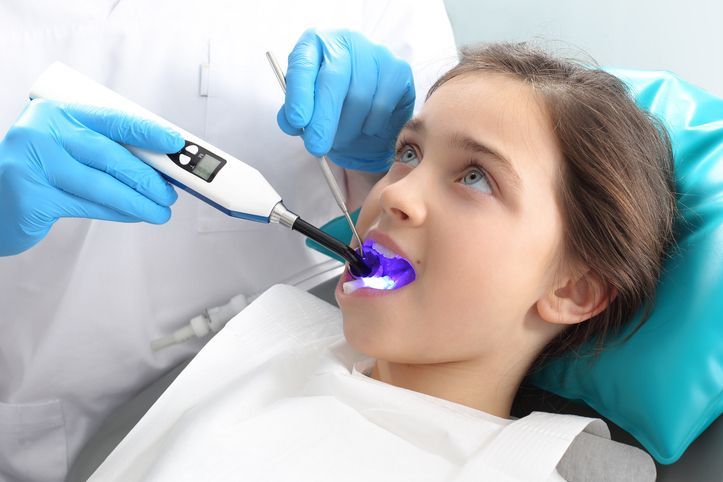Dental Emergency? (724)942-8300
Our Blog
Dentistry & Orthodontic Tips, Blogs, & More!
Blog

December 23, 2024
Tooth sensitivity can be a frustrating and painful experience, often triggered by everyday activities like eating, drinking, or even brushing. For many, the sharp, temporary discomfort can feel like a mystery, leaving them unsure of how to find relief. Understanding the causes and treatment options for tooth sensitivity is the first step toward a pain-free smile. At Severns Dentistry, we provide comprehensive care to address dental concerns, including tooth sensitivity, and our team is here to help you manage this common condition. If you’re seeking expert dental care or need an orthodontist in McMurray, we’re here to ensure your oral health remains a top priority. Common Causes of Tooth Sensitivity Tooth sensitivity, also known as dentin hypersensitivity , occurs when the underlying layer of your teeth (dentin) becomes exposed. This can happen for several reasons: 1. Enamel Erosion The enamel is the protective outer layer of your teeth. When it wears down due to aggressive brushing, acidic foods, or teeth grinding, the dentin underneath becomes exposed, leading to sensitivity. 2. Receding Gums Gum recession can expose the roots of your teeth, which lack protective enamel, making them more vulnerable to sensitivity. 3. Tooth Decay and Cavities Damaged or decayed areas of your teeth can create pathways to the nerve endings in the dentin, resulting in sensitivity. 4. Cracked or Chipped Teeth Cracks or chips in a tooth can expose the dentin or even the inner pulp, causing sensitivity and sometimes severe pain. 5. Post-Orthodontic Treatment Sensitivity After orthodontic adjustments or treatments, some patients experience temporary sensitivity as their teeth and jaw adapt to new alignments. 6. Acidic Foods and Beverages Frequent consumption of citrus fruits, soda, and other acidic items can erode enamel and increase sensitivity. 7. Teeth Whitening Products Some over-the-counter whitening treatments can temporarily irritate the teeth, especially if the enamel is already compromised. How to Manage Tooth Sensitivity Managing tooth sensitivity often begins with identifying and addressing the root cause. Here are some tips and treatment options to help alleviate discomfort: 1. Use a Desensitizing Toothpaste Toothpastes specifically formulated for sensitive teeth can block the pathways that lead to nerves, reducing sensitivity over time. Brands like Sensodyne are popular for this purpose. 2. Practice Gentle Brushing Switch to a soft-bristled toothbrush and use gentle, circular motions when brushing. Avoid scrubbing too hard, as this can wear down enamel and irritate gums. 3. Limit Acidic Foods and Drinks Reducing your intake of acidic items can help prevent further enamel erosion. Drinking through a straw can minimize contact with your teeth, and rinsing with water afterward can neutralize acids. 4. Maintain Excellent Oral Hygiene Regular brushing, flossing, and dental cleanings can help prevent gum disease, cavities, and other issues that contribute to sensitivity. 5. Dental Sealants or Bonding For exposed dentin or worn enamel, your dentist may recommend sealants or bonding materials to protect sensitive areas. 6. Fluoride Treatments Professional fluoride applications can strengthen your enamel and reduce sensitivity. 7. Address Bruxism (Teeth Grinding) If grinding your teeth at night is causing sensitivity, your dentist may recommend a custom mouthguard to protect your enamel. 8. Orthodontic Care For those dealing with misalignment or jaw issues contributing to sensitivity, consulting an orthodontist in McMurray can provide long-term relief and improve overall dental health. When to See a Dentist If your tooth sensitivity persists or worsens despite at-home care, it’s important to schedule an appointment with a dental professional. Severe or ongoing sensitivity can be a sign of a more serious issue, such as: Advanced gum disease Deep decay or infection Significant enamel loss At Severns Dentistry, we offer personalized treatment plans to address sensitivity and improve your oral health. From preventive care to advanced solutions like sealants and orthodontic treatments, our team is equipped to help. How Orthodontics Can Help with Sensitivity Misaligned teeth or bite issues can contribute to uneven wear on enamel, gum recession, and increased sensitivity. Working with an orthodontist in McMurray can correct these issues, reducing sensitivity and preventing further damage. Treatments like braces or aligners can also improve overall oral health by making teeth easier to clean and less prone to decay or gum problems. Preventing Tooth Sensitivity While tooth sensitivity can often be managed, prevention is always the best approach. Here are a few tips to keep your teeth healthy and sensitivity-free: Brush twice daily with fluoride toothpaste. Floss regularly to remove plaque and prevent gum disease. Avoid clenching or grinding your teeth. Visit your dentist or orthodontist regularly for cleanings and check-ups. Trust Severns Dentistry for Your Dental Needs If you’re struggling with tooth sensitivity or need orthodontic care, the team at Severns Dentistry is here to help. We offer comprehensive dental services, including expert care from an orthodontist in McMurray, to ensure your smile stays healthy and strong. Schedule an appointment with Severns Dentistry to learn more about managing tooth sensitivity and improving your oral health. Let us help you smile with confidence!
©2022 Severns Dentistry and Orthodontics.
All Rights Reserved. Website Design by Higher Images









